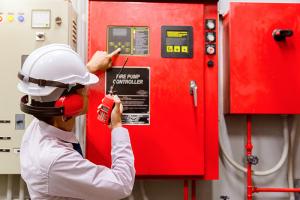Reviving retrocommissioning and energy efficiency
As health systems adjusted their operations for the pandemic, disparities emerged in the amount of support for energy efficiency from facility to facility.
Reduced revenue from suspension of elective procedures and changes in the level of unreimbursed care led to tighter capital funding and mandates to reduce expenses. Some organizations put their energy-efficiency projects on hold, while others made them integral to their COVID-19 response and recovery plans.
Resources
Below is a list of common strategies used by American Society for Health Care Engineering (ASHE) members for keeping energy efficiency relevant to missions and margins.
- Pivot toward retrocommissioning (RCx). As defined at energytocare.org, RCx produces paybacks between six months and two years and is a great place to focus efforts in lean times.
- Create a leveraged energy team. Limit expenses by tapping into existing resources (e.g., the most diagnostic AC mechanic, controls technician and RCx agent).
- Focus on COVID-19 response. RCx teams are experts in HVAC infrastructure. Facilities managers should make them an integral part of adapting systems and spaces for pandemic needs.
- Stop squeaky wheels. Solve reactive maintenance issues to free up time and save energy. Facilities managers should see ASHE Tools online for a checklist of squeaky wheels specific to COVID-19-adapted health care spaces.
- Improve compliance. Improve compliance issues such as critical room pressurization and humidity control. These issues can often be fixed with targeted maintenance or reducing airflow.
- Restructure service agreements. Facilities managers should look for opportunities to create more manpower in their service agreements by shifting risk from “repair and replace” to “block hour” or “test and inspect” agreements.
- Shift operating budget. To fund RCx, facilities managers should consider shifting a portion of the utility budget or purchased maintenance services that can be deferred until next year. They also can work with finance to scale up their energy program by paying their energy consultants directly from the energy cost center they are working to reduce.
- Plan and pitch what’s next. Maintain a list of infrastructure needs and a plan to scale up RCx efforts to sustain performance.
ASHE members should visit the link under Resource box to learn more strategies to help keep energy efficiency projects moving forward.




